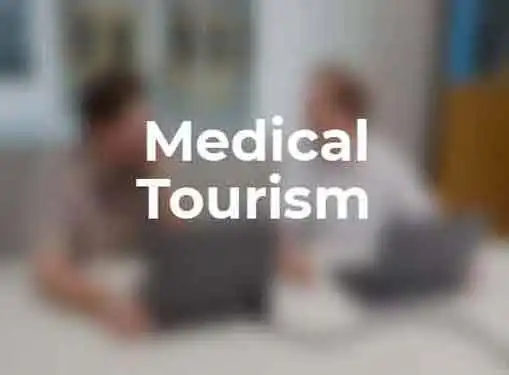Starting a Business
Medical Tourism - Potential and Opportunities
Written by Gautam Patil for Gaebler Ventures
Escalating medical care costs coupled with inefficient and inadequate national health care programmes have prompted citizens to seek treatment in developing countries providing competent and cost effective medical care. Countries like India, Singapore and Thailand have made impressive advances in medical science and have professionals and infrastructure which is on par or surpasses the best that the West has to offer.
The Asclepia temples of the ancient Greeks and the Japanese Onsen (mineral hot water springs) were flocked centuries ago by travelers who formed the lineage of medical tourism.

The reason behind the recent rise in travelers seeking medical care, however, is attributed not to the lack of medical facilities but to the lure of cheaper and quicker access to medical care.
The Promise of Medical Tourism
Low cost of living, high purchasing power parity factors and low or non-existent litigation costs (mainly related to insurance) make it possible for these developing countries to provide quality medical care at much lower prices.
Medical tourists claim to have made savings of about 40%-70% depending on the procedure.
For critical and major surgeries which cost around $100,000 this translates into significant savings even if the travel and stay are accounted for. Some agencies even include a post procedure vacation to local exotic destinations as a part of the recuperation process.
The opportunity to visit a vacation destination for medical treatment coupled with easy access to air transportation has given medical tourism a lot of thrust, and many countries and individual entrepreneurs are beginning to take steps to benefit from it.
Medical tourism agencies get the patient in touch with doctors abroad for diagnosis and help set up an appointment for the surgery and in addition take care of the travel and stay logistics.
Hospitals abroad are also obtaining accreditations from the US based Joint Commission International (JCI) and the Trent International Accreditation Scheme (which is in use in UK and Hong Kong) to reassure foreign patients of the quality of medical care provided by them. Also, local exotic destinations are being marketed aggressively by tourism departments as 'recuperation centres' to grab a share of the pie.
Barriers to Market Development
Surprisingly, only a fraction of patients ever undertake travel to avail of this opportunity. Some of the main reasons are a perceived lack of hygiene and lack of an appropriate insurance cover to encourage such travel.
Due to past experience or a lack of awareness most developing countries are perceived to be unhygienic thereby raising fears of infection. Also, insurance policies do not cover all surgical procedures (especially those which are cosmetic in nature) and as the foreign health provider is not recognized, the costs incurred by the patient - for medical care, travel and stay - are not covered under the insurance.
Apart from this, other factors like cultural differences, discomfort of travel and distance from family discourage prospective patients.
This Market Will Be Big
Despite these issues, medical tourism has many exciting prospects for entrepreneurs and insurance companies. Patient misconceptions like lack of hygiene and other fears can be allayed by providing information and encouraging interaction with previous beneficiaries.
Hospitals are also eager to tap this revenue boosting stream and will be eager to co-operate with agencies and join the network of health service providers. Travel and stay logistics can now easily be arranged online and do not need any specific infrastructure or know-how. The only real challenge is to be able to reach out to the right candidates and address their concerns.
Given the importance of word of mouth publicity and the personal nature of service required off these agencies - which are basically highly effective barriers to entry - early starters can reap a lot of benefits.
Insurance companies could benefit immensely from reduced claims by these patients by partnering with foreign accredited hospitals. In addition, policies designed specifically keeping 'medical tourists' in mind could help diversify the product portfolio with attractive low premium policies.
For those entrepreneurs with a willingness to be early to market and the tenacity to wait out the inevitable market acceleration in the medical tourism industry, this is a very attractive entrepreneurial opportunity.
Gautam Patil is a recent MBA graduate from the Indian Institute of Management, Bangalore. In addition to serving as a contributing writer for Gaebler.com, he will join the consulting firm Oliver Wyman at their London office.
Share this article
Additional Resources for Entrepreneurs


Conversation Board
Do you have something to say about medical tourism? We welcome all questions, comments and suggestions.